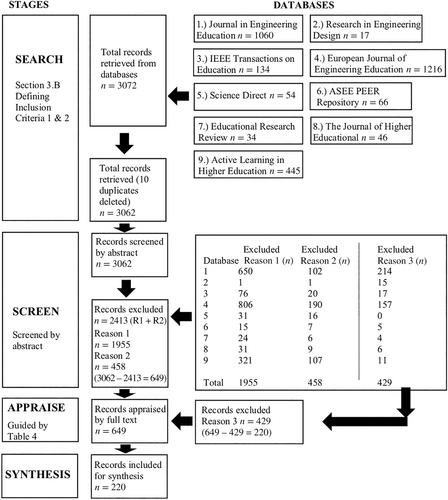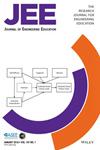Experiential learning in engineering education: A systematic literature review
Abstract
Background
The evolving transformations of our society at large, academic institutions, and engineering discipline in the 21st century have profound implications for the nature of experiential learning being offered in engineering education. However, what is experiential learning in the context of engineering education?
Purpose
The introduction and evaluation of experiential learning in undergraduate engineering education between 1995 and 2020, as well as the essential elements for consideration in its future implementation, have been analyzed and synthesized.
Design/Method
A population–intervention–comparison–outcome framework and PRISMA flow diagram were used to outline a systematic literature review on how experiential learning was introduced into undergraduate engineering curricula, how it was evaluated, and the essential elements for consideration in its future implementation.
Findings
A total of 220 studies were synthesized. These studies offered a new lens of seeing experiential learning, which were interpreted as “paradigm shifts.” More than one-half of the total studies were conducted between 1995 and 2005. These studies were strongly directed at measuring student performance and occurred in a decade when many North American engineering curricula were being restructured. The review indicated that experiential learning has been successfully carried out via diverse methodologies. However, there is a strong need to enrich it with a theoretical basis.
Conclusions
Experiential learning introduced into engineering education appeared to be an interdependent self–school–community entity. In the changing work environment of the 21st century, heightened by the impacts of the COVID-19 pandemic, invoking the inseparability of self, school, and community would provide unique perspectives to our evolving understanding of experiential learning and its relevance in engineering discipline.


 求助内容:
求助内容: 应助结果提醒方式:
应助结果提醒方式:


